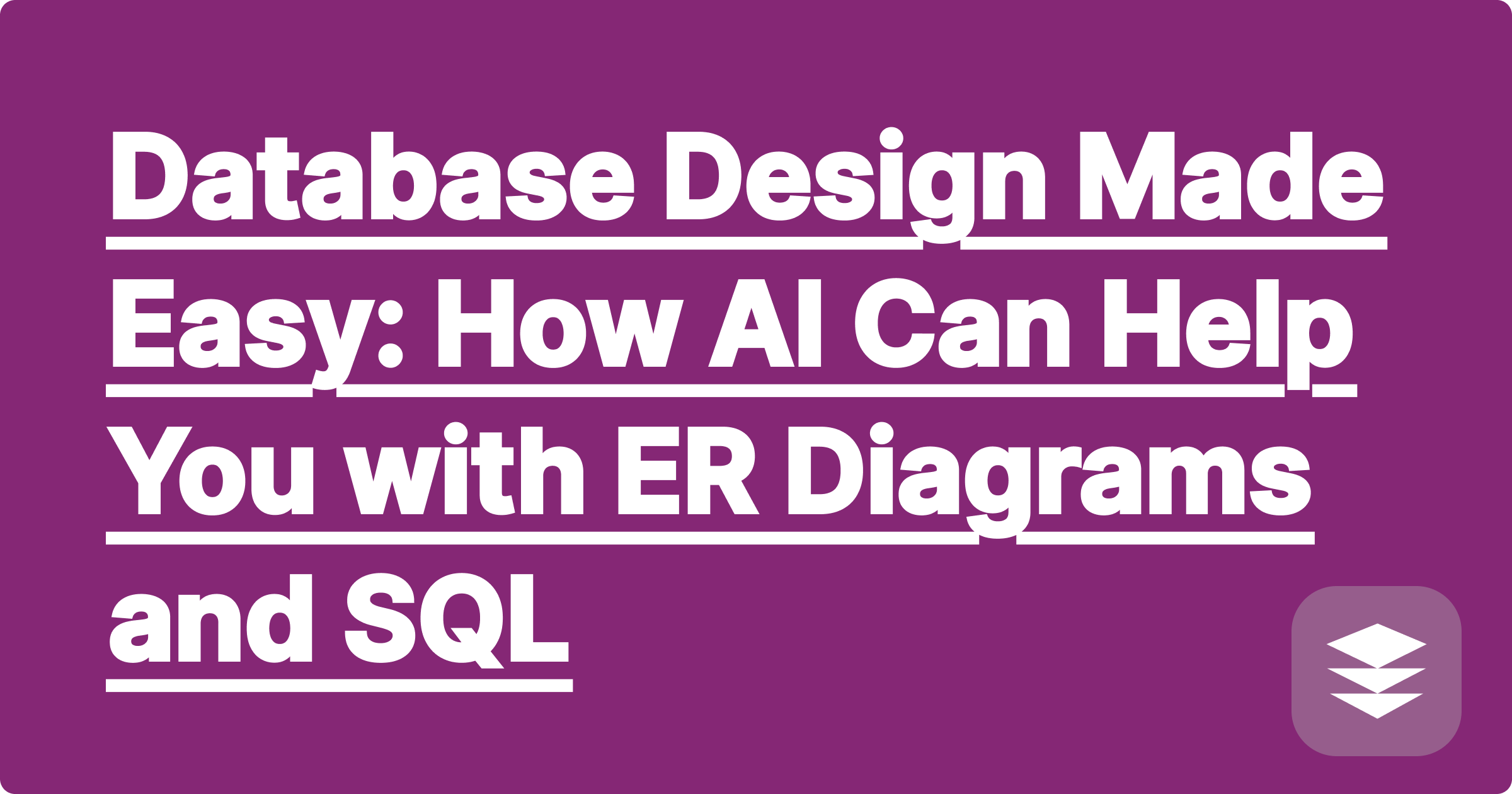
Your database course is where the theoretical world of data structures meets the practical demands of real-world applications. The core of the course revolves around two fundamental skills: designing a clean, efficient database schema, and then interacting with that database using SQL. Both can be incredibly challenging.
Designing a good schema requires you to think abstractly about entities and their relationships, a process visualized through an Entity-Relationship (ER) diagram. Writing complex SQL queries requires meticulous, error-free syntax. An AI assistant like GPAI can be a powerful partner for mastering both of these critical skills.
Whether you need an erd diagram generator ai to help you brainstorm your design or a sql query helper to debug a tricky JOIN, this guide will show you how AI can simplify your database homework.
One of the hardest tasks is translating a set of business requirements into a logical ER diagram.
This process is abstract and requires careful planning.
A tool like GPAI Cheatsheet can help you visualize your schema before you ever write a line of SQL.
This erd diagram generator ai capability gives you a powerful visual starting point, helping you catch design flaws before they become major problems.
Writing SQL is a game of precision. A missing comma or a misplaced JOIN condition can lead to cryptic error messages or, even worse, incorrect results. An AI sql query helper can act as both a writer and a debugger.
Use Case 1: Generating Complex Queries
Your Prompt: "Write an SQL query to find the names of all students enrolled in the 'CS101' course. The schema has three tables: Students (StudentID, Name), Courses (CourseID, CourseName), and Enrollments (StudentID, CourseID)."
GPAI Solver's AI-Generated SQL:
SELECT
s.Name
FROM
Students s
JOIN
Enrollments e ON s.StudentID = e.StudentID
JOIN
Courses c ON e.CourseID = c.CourseID
WHERE
c.CourseName = 'CS101';
Use Case 2: Explaining and Debugging Queries
Your Prompt: "My SQL query is slow. Can you explain this query plan and suggest an index?" or "Explain what this complex nested query does in simple terms."
The AI can break down the logic of a query, explain the different types of JO
INs, and suggest performance optimizations like adding an index to a foreign key column.
Use the GPAI Cheatsheet builder to create the perfect study guide for your database final. Create a master document that includes:
This creates a single, powerful reference for both the design theory and the practical query syntax.
Databases are the backbone of almost all modern software. Mastering schema design and SQL is a critical skill for any tech career. Don't let the abstract nature of ER diagrams or the rigid syntax of SQL hold you back. Use AI as your assistant to visualize your designs, write your queries, and build a deep, practical understanding of how to manage data effectively.
[Struggling with your database course? Try GPAI today. Let the AI help you design ER diagrams and write perfect SQL queries. Sign up now for 100 free credits.]
Why Your CS Degree is 50% Theory: How to Bridge the Gap with AI
Debugging in Your Head vs. AI: A Smarter Way to Find Bugs
From Pseudocode to Python: How AI Can Translate Your Professor's Logic
Ace Your Technical Interview: Using GPAI to Practice DSA Whiteboarding
Understanding Operating Systems: Visualizing Semaphores and Deadlocks with AI
Your Personal AI Teaching Assistant for Machine Learning Concepts
How to Document Your Code Instantly with an AI Comment Generator
The Best Way to Learn Computer Networking: From OSI Model to Packet Tracing
Database Design Made Easy: How AI Can Help You with ER Diagrams and SQL
Surviving Your Software Engineering Group Project with AI-Powered Tools